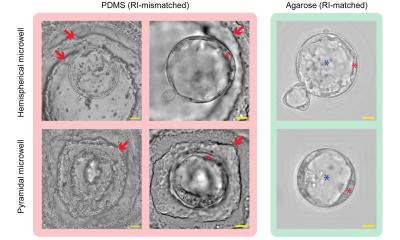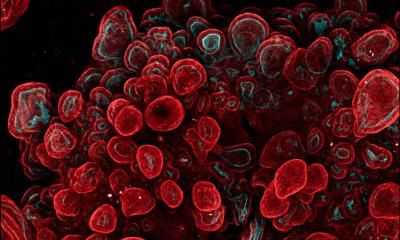Blood test may detect Alzheimer's disease before symptoms appear
A new blood test is under development that has detected two kinds of proteins found in people suffering Alzheimer's.

100 years ago this November, Dr Alois Alzheimer produced the first description of the disease that would take his name. Today, in the UK, France, Italy or Germany around 750,000 to a million people suffer Alzheimer’s disease. There is still no cure, the afflicted and their families still suffer, and research is under-funded.
However, a new blood test is under development that has detected two kinds of proteins found in people suffering Alzheimer’s, and this could be used to diagnose the disease long before there are any symptoms, thus enabling earlier treatment.
Aiming to develop a biomarker to aid diagnosis or monitor disease progression, researchers led by Dr Simon Lovestone, at the MRC Centre for Neurodegeneration Research, King’s College London, and the Institute of Psychiatry, London, have used two-dimensional gel electrophoresis coupled with mass spectrometry to search for biomarkers in peripheral tissue. Describing their study* Dr Lovestone said: ‘We performed a case–control study of plasma using this proteomics approach to identify proteins that differ in the disease state relative to aged controls.’ For the discovery-phase proteomics analysis, 50 Alzheimer’s dementia patients and 50 healthy elderly people, were recruited. For validation, 511 people with Alzheimer’s and other neurodegenerative diseases and healthy elderly volunteers were examined. ‘Image analysis of the protein distribution of the gels alone identifies disease cases with 56% sensitivity and 80% specificity. Mass spectrometric analysis of the changes observed in 2-D electrophoresis identified a number of proteins previously implicated in the disease pathology, including complement factor H (CFH) precursor and -2-macroglobulin (-2M). Using semi-quantitative immunoblotting, the elevation of CFH and -2M was shown to be specific for Alzheimer’s disease and to correlate with disease severity although alternative assays would be necessary to improve sensitivity and specificity. These findings suggest that blood may be a rich source for biomarkers of Alzheimer’s disease and that CFH, together with other proteins such as -2M may be a specific markers of this illness.’
*The study is funded by the Alzheimer’s Research Trust, UK.
Literature: ‘Proteome-based plasma biomarkers for Alzheimer’s disease’.
A Hye, S Lynham, M Thambisetty,
M Causevic, J Campbell, H L Byers,
C Hooper, F Rijsdijk, S J Tabrizi,
S Banner, C E Shaw, C Foy, M Poppe,
N Archer, G Hamilton, J Powell,
R G Brown, P Sham, M Ward and
S Lovestone Brain 2006 129(11):3042-3050; doi:10.1093/brain/awl279
14.11.2006











